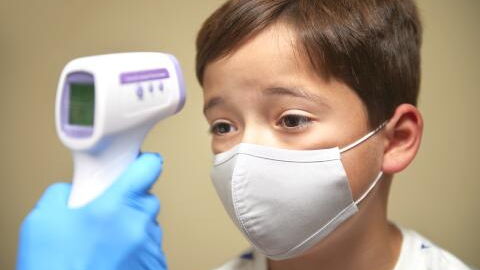The Delta variant of the coronavirus is the most transmissible to date. An analysis by Public Health England found that it was associated with a 60% higher risk of transmission in the home than the Alpha variant, which was discovered in the UK. itself already about 50% more transmissible than the original Chinese strain.
Discover our latest podcast
This means that this variant can also spread more easily among children. Indeed, several countries have recently recorded a higher proportion of coronavirus cases in children. In Israel, half of the 125 new infections reported on Monday 21 June were in children, according to the country's health ministry. The ministry added that about 70% of the new infections reported on Monday were due to the Delta variant.
Scottish researchers have also found that Delta cases are most prevalent in younger age groups. In the UK, a study still awaiting peer review found that coronavirus infections were now five times more common in children aged 5 to 12 and young adults aged 18 to 24 than in people over 65 (the Delta variant now accounts for up to 99% of coronavirus cases in the UK, according to Public Health England). According to the study, most of the young adults who have recently been infected were not vaccinated.
Children could transmit the virus to unvaccinated adults

Disease experts say that children do not appear to develop more severe cases of COVID-19 because of the Delta variant - and do not appear to be biologically more susceptible to the variant than adults.
The transmissibility of the virus could be increased, but it is increased for everyone, not just for children.
The Scottish researchers found that being infected with the Delta variant doubled the overall risk of hospital admission compared to the Alpha variant. (Previous studies have suggested that the Alpha variant may be 30-70% more deadly than the original strain.) But even if the risk of a child being hospitalised as a result of infection with the Delta variant were to be doubled, the risk would still be 'minuscule,' according to Eyal Leshem, an infectious disease specialist at Israel's Sheba Medical Center.
This is because severe cases of COVID-19 are extremely rare in children. But the transmissibility of the variant means that children who are infected with the Delta variant can easily transmit it to unvaccinated adults, or perhaps to people with less robust immune responses to vaccines, such as the elderly.
In rare cases, some children may become seriously ill

Pfizer and Moderna plan to release trial data on the safety and efficacy of their vaccines in young children in the fall and then seek FDA approval. Until then, disease experts continue to recommend masks for unvaccinated children.
In very rare circumstances, some children can become seriously ill from the Delta variant. Erlinda Ulloa revealed that she has seen a few paediatric patients who have been hospitalised after contracting the virus from an unvaccinated family member.
We've had a few cases here and there, it's a repeating pattern: basically a lot of family members are vaccinated, but then they're exposed to an unvaccinated infected person.















